What's College For?
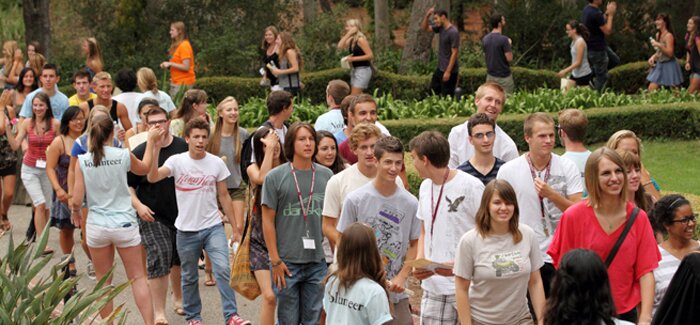
What’s the first question people ask
“The qualities that employers seek are the concern and result not so much of specialized education as of liberal education.” [1] Henry Ford
when you start talking about college? Where are you going?
But before you think about where you’re going to college, you should think about why you’re going to college.
If you ask yourself “What’s college for?” that will help you decide where to go.
One obvious answer to “What’s college for?” is: a job. Let’s start there.
There’s no question that a college degree increases your chances of getting a job. Entering the college you will face difficulties, such as lack of time to write articles, essays and term papers. Do not despair, you can ask for help and hire essay writers. So if you’re thinking about college as a way to get a job, that’s a good reason to go. But it’s not the only reason. College is also about learning to think critically and independently, gaining knowledge and understanding the world we live in, and developing the skills to communicate effectively.
Education and Your Career
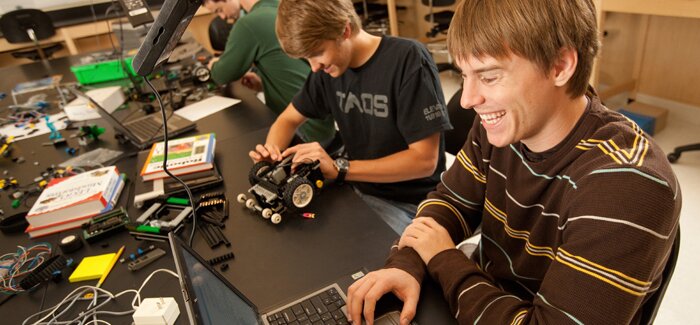
If job opportunities are what you’re after
“How can we prepare students for jobs that don’t yet exist? Provide them with the ability to think and read critically, to write and communicate effectively, to ask intelligent questions.” [2] James W. Perry
you might think you need an education that will give you the knowledge and skills for a specific job. But there are real dangers in an education that is too narrowly focused.
First, you don’t want to get stuck at an entry-level job for your entire working life. You want to advance in your career, and for that you need more than the knowledge and skills for a specific job. You need problem-solving skills, communication skills, critical thinking skills, and creativity.
Second, almost nobody stays in the same career for their whole working life. These days, the job market changes very fast. Some careers won’t even be there when you graduate, and some don’t even exist yet! During your studies, a lot of time is taken up by tasks that will not affect your career at present, but will only take your time. Try to focus on what you want in the future, in assignments such as abstracts and articles you can buy essay online. You can expect to change careers at least three times. For that you need a whole lot more than an education for a specific job. You need flexible skills that you can apply to different kinds of work.
Third, you might start college with a specific job in mind, but end up doing something else. Very often this happens due to the large number of homework assignments. After nights spent not with friends, but writing essays, the desire to work in one area or another disappears. You can always turn to professionals from essayhub for help and free up your time for something more interesting for you. You might not even know what you want to do. That’s okay — there are lots of interesting jobs that most people starting college have never heard of. You don’t want an education that locks you into a career you may not want. You need an education that lets you explore your skills, your interests, and your options.
You're Not Just a Job!
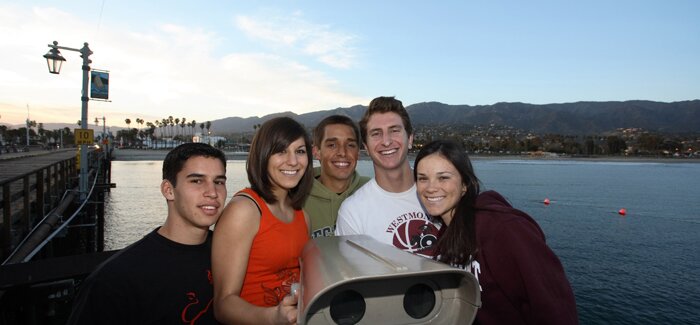
A good job is important.
“The end of all education should surely be service to others.” [3] Cesar Chavez
It gives you financial security and interesting challenges. Both very good things. But you are not just a job. And for all the stress we put on college, we almost never ask how it can help us achieve not just a good job, but a good life. To minimize stress in college, you can always seek help from specialists. You can contact the online service where you will be answered the question "Where can I do my assignment with best writers?".
What are some other good things in life?
- Having relationships
- Being a part of a community
- Thinking for yourself — making up your own mind
- Choosing good leaders and fair laws
- Making a difference in your society
- Exploring and discovering new places, cultures, and ideas
- Growing in your physical and emotional health
- And for members of faith communities, there are goods that over shadow all of these: the good of being in a relationship with God, of being a part of something greater than yourself.
Can college help you achieve good things?
Can it serve not only what you do, but who you are? Yes, you can, if you have the right education and a good and reliable study assistant who provides research paper services. You want an education that will give you opportunities for leadership, that will help you learn to live in a diverse community, and that will integrate your learning with the rest of your life.You want a liberal arts education.
What is a Liberal Arts Education?
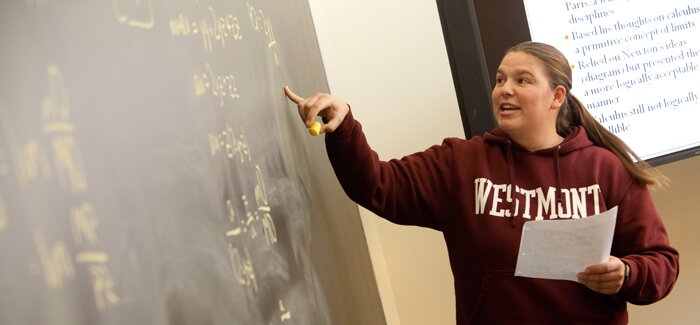
There are different kinds of education,
just as there are different kinds of schools. A research education gives you advanced knowledge in a specific academic field, like chemistry or economics. A vocational education gives you the knowledge and skills for a specific profession, like nursing or engineering. A liberal arts education is different from either of these.“The aim [of education] must be the training of independently acting and thinking individuals who, however, can see in the service to the community their highest achievement.” [4] Albert Einstein
A liberal arts education has five basic features:
- It’s broad — you’ll learn about many different fields. You’ll have the chance to explore your interests and discover hidden talents.
- It’s connected — real world problems don’t come in neat packages that can be solved by just one specialty; you need to be able to see how very different areas matter to the issues you’ll face at work or outside of work.
- It’s holistic — it treats you as a whole person, relating your learning to all of your life.
- It’s communal — you live with the people you’re learning with, learning to understand those different from you, learning how to work as a team, and developing close relationships with professors.
- Most important, it’s fundamental — you’ll gain essential skills that can be applied to many different situations:
- Communication — writing, reading, speaking, listening and interpreting what is said... and not said
- Problem solving — seeing a problem from all sides, and anticipating the results if you do one thing instead of another
- Analyzing — breaking down complex issues into simpler parts
- Reasoning — defending your views and following an argument to see its strengths and weaknesses
- Creativity — imagining new ways to look at a situation or solve a problem
Honing these skills to a high level is what sets the really successful people apart. That’s what’ll give you career advancement, career flexibility, and leadership at work and in your community.
That’s what you’ll get from a liberal arts education.
The Nuts and Bolts of a Liberal Arts Education

Let's get to specifics.
Here are some top leaders and their college majors:
- Barack Obama, 44th President of the United States, political science
- Alan G. Lafley, President and CEO, Procter and Gamble Company, Undergraduate major: history
- Jill Barad, Former CEO, Mattel Inc., psychology and English
- Brian Lamb, CEO, C-Span, majors: speech and communication
- Steve Forbes, CEO, Forbes Inc., major: American history
“Leaders of 30 top high-tech firms recently stated: It is impossible to operate an effective corporation in our new economy by employing technology graduates alone. To prosper we need creative thinkers at all levels of the enterprise who are comfortable dealing with decisions in the bigger context. They must be able to communicate to reason, create, write and speak.”
[5]
What does a liberal arts education look like?
First, you want a broad general education. General education is usually the first two years of your college education. You’ll take classes in the humanities, like literature, history, art, religion, and philosophy; the social sciences, like psychology, sociology, political science, and economics; and the natural sciences, like math, physics, chemistry, and biology.
Many people don’t get the point of a general education. They think of it as a checklist of things they have to take that are just a waste of time. They’re eager to specialize in things that are clearly related to a job.
Don’t fall into this trap! General education gives you the essential thinking skills that you need to succeed in your career. And it gives you the chance to explore what really interests you. So don’t focus on job-related classes too early; instead, look for a broad general education.
Second, make sure the courses tie together. Real world problems draw on many areas of learning. You want to make sure that the parts of your learning are working together, or they won’t help you in the real world.
Third, you’ll have a major, but it doesn’t have to be linked to a career. This can seem scary, but it’s actually really smart. A literature major isn’t linked to a specific career. But it gives you skills useful in many careers — you’ll be ready to move up in your career, and ready to change careers. The same goes for math, or economics, or philosophy. So it’s okay if your major isn’t directly linked to a career.
Finally, a lot of learning happens by doing . Look for chances to put your education to work, through internships or service projects. You’ll learn to work as a team and to apply your classroom learning to concrete situations.
Where do I get a Liberal Arts Education?
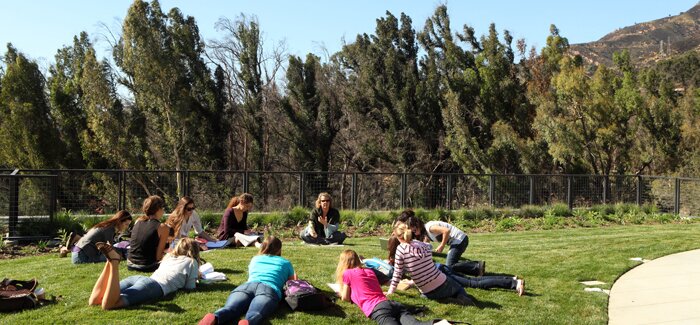
Basically you’ve got four choices for where to go to college:
“The great enemy of learning is anonymity and invisibility. People who are invisible don’t learn” [6] Lee Shulman
- Community colleges
- Regional state universities
- Public and private research universities
- And smaller liberal arts colleges and universities, some with only undergraduate students and some with masters’ programs
The best place for a liberal arts education
(not surprisingly) is at a liberal arts college or university.
A liberal arts college gets you two things that it’s very hard for the big places to offer: personal attention and a close community. Faculty and staff will know you and can take a personal interest your success. And since you’ll probably be living on campus, classmates will become life-long friends.
This can be very important to your success. You’re twice as likely to finish your degree if you go to a liberal arts college than if you go to any other kind of school. Community is a big reason why.
There’s another big difference between the big schools and a small one; at a small school it’s easier to see the connections between your classes and between your learning and your life. At the big places, your learning can be fragmented, and it can seem like just one small piece of a fragmented life rather than being related to your whole life.
Choose an Education
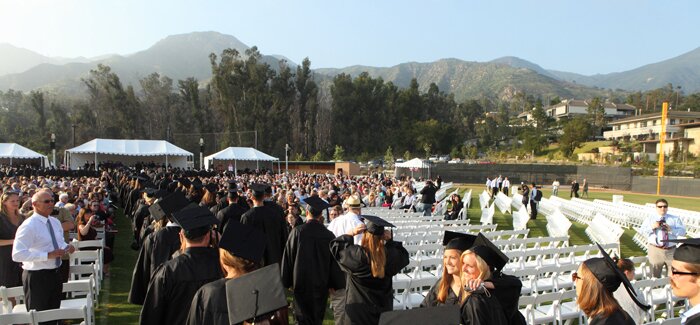
Choosing a college can be complicated.
“The beautiful thing about learning is that no one can take it away from you.” [7] B.B. King
But it’s a whole lot easier if you remember what it’s all about — an education. And if you want an education that does all the things we’ve talked about, choose a liberal arts education.
So, before you choose a college, choose an education.